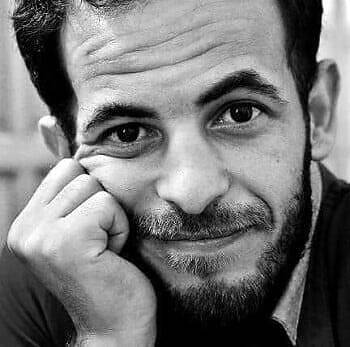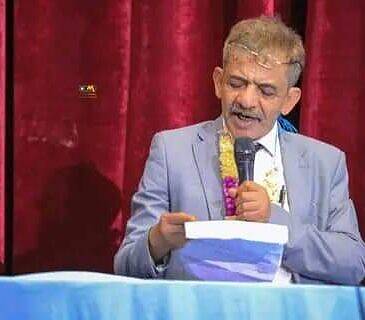
خاص انزياحات
في المخيمات، الشتاء يأتي محملاً بالثقل لا بالجمال. الحماس الذي كنا نشعر به لبرودة الطقس، للمطر الخفيف على النوافذ، ولرائحة القهوة التي كانت تتسلل عبر دفء البيوت، أصبح ذكرى بعيدة لمن يسكنون الخيام. فصل الشتاء هنا لا يعني الاستمتاع بملابس ثقيلة أنيقة أو لحظات تأمل تحت السماء الرمادية؛ بل هو خوف متجدد من الطبيعة التي كانت، فيما مضى، رمزًا للسلام الداخلي.
في المخيمات، القليل من المطر يصبح طوفانًا. الريح التي كانت تداعب الوجوه في نزهة شتوية تتحول إلى عدو يسلب الدفء من الخيام الهشة. في كل هبة ريح، يمكن سماع الصرير المخيف للقماش الذي يحاول الصمود. لا جدران تقيك من البرد، لا نوافذ مغلقة تحجب المطر، ولا سقف يُعتمد عليه لحماية الأطفال النائمين. فقط خيمة، بالكاد تقف، تتمايل مع أولى قطرات المطر، ثم تستسلم تمامًا عند أول عاصفة.
الشتاء في المخيمات هو انتظار دائم للكارثة. حين تتجمع الغيوم في السماء، تبدأ القلوب بالخفقان، ليس بسبب الجمال، بل بسبب الخوف من الغرق. الخيام، مهما كانت محكمة الإغلاق، تسرب الماء، وأحيانًا تنهار. الأطفال الذين كانوا يلهون بارتداء معاطفهم الثقيلة يتحولون إلى عابري أقدام في الطين، بينما الآباء يحاولون بلا جدوى تجميع المتاع الناجي من الطوفان داخل خيامهم الغارقة.
وفي ظل كل هذا، تفقد القهوة طعمها. لا مجال للاستمتاع بلحظة دفء، فكل لحظة هي معركة ضد البرد والرطوبة. النار التي كانت تجمع العائلة حولها لتروي القصص، أصبحت بعيدة المنال. وأصبح الشتاء مرادفًا للصراع المستمر، ليس بين الإنسان والطبيعة فحسب، بل بين الأمل واليأس، بين القدرة على التحمل والرغبة في الاختفاء.
هذا الشتاء في المخيمات لا يشبه الشتاء الذي كنا نعرفه؛ هو فصل بلا ذكريات جميلة، بلا دفء، بلا حب حتى. هو مجرد قتال يومي ضد الظروف، انتظار مستمر للانفراج، وتذكير دائم بأن الغرق ليس فقط تحت الماء، بل في أعماق النفس، حيث لا حيلة ولا مهرب.
___________
In the camps, winter arrives not with beauty but with burden. The excitement we once felt for the cold weather, for the gentle rain on the windows, and for the aroma of coffee wafting through warm homes has become a distant memory for those living in tents. Winter here no longer means enjoying warm clothes or moments of reflection under gray skies; it is a renewed fear of nature, which was once a symbol of inner peace.
In the camps, a little rain turns into a flood. The wind that once caressed faces during a winter stroll becomes an enemy that steals warmth from the fragile tents. With every gust of wind, you can hear the terrifying creak of fabric struggling to hold on. There are no walls to protect you from the cold, no closed windows to block out the rain, and no roof to rely on to shelter sleeping children. Only a tent, barely standing, swaying with the first drops of rain, then completely surrendering at the first storm.
Winter in the camps is a constant waiting for disaster. When the clouds gather in the sky, hearts begin to race—not because of beauty, but out of fear of drowning. The tents, no matter how tightly secured, leak water, and sometimes they collapse. Children who used to playfully wear their heavy coats now trudge through the mud, while parents futilely try to gather the belongings that survived the flood inside their submerged tent.
Amidst all of this, coffee loses its flavor. There’s no room to enjoy a moment of warmth; every moment is a battle against the cold and humidity. The fire that once gathered the family around to tell stories has become out of reach. Winter has turned into a synonym for ongoing struggle—not only between man and nature, but also between hope and despair, between endurance and the desire to give up.
This winter in the camps is unlike the winters we once knew; it is a season without fond memories, without warmth, without even love. It is a daily fight against the circumstances, an endless wait for relief, and a constant reminder that drowning isn’t just under water, but also deep within, where there is no escape, no solution.
Yousef El Qedra


